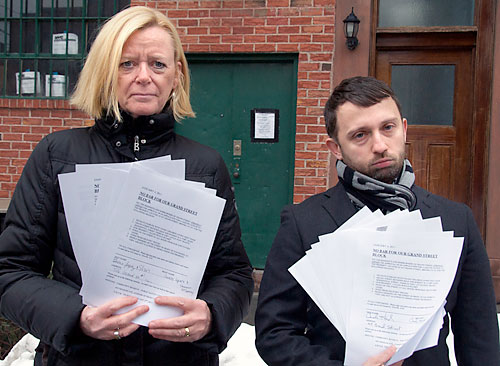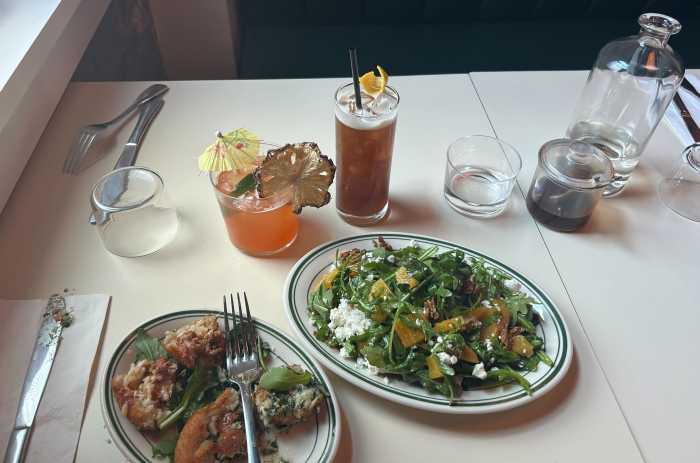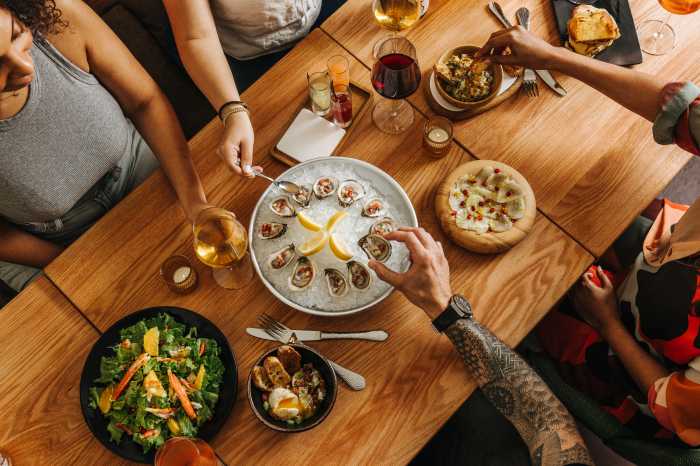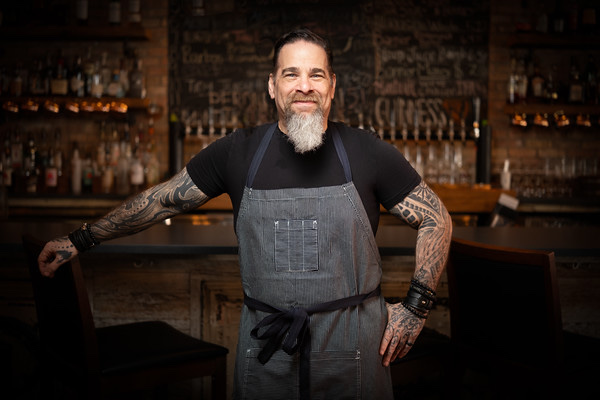Last call, Williamsburg!
Some community leaders in the booze-soaked partyland want a moratorium on all new liquor licenses — curtailing the flow of new bars and restaurants into a seriously liquored-up neighborhood.
Community Board 1 Chairman Chris Olechowski proposed the ban on all future eating and drinking establishments this week, complaining of the “over proliferation” of raunchy sex, public urination, illicit drug use, and loud music.
“The accumulating burden on our community has caused great concern,” Olechowski wrote in a memo to board members on Thursday after his executive committee approved the ban unanimously. Olechowsky blamed the “negative cumulative effects” on “indifferent business owners” and “unruly patrons.”
Olechoswki’s proposal is certainly not new — Community Board 2 briefly shot down a bunch of liquor license requests in 2009 until Borough President Markowitz intervened to keep neighborhood taps running — and complaints about bars are as common in Williamsburg as, well, bars.
Community board staffers say that they have received a rising number of complaints from residents about excessive noise and late-night revelry from many new bars.

And some residents have mounted aggressive campaigns to prevent the board from handing out liquor licenses like candy — a campaign that even ensnared a quiet wine bar on the corner of Metropolitan and Driggs Avenues and a bar in the middle of a residential stretch of Grand Street.
Still, Olechowski’s call for a mini-Prohibition has created a rift between drinkers and teetotlers.
“Wow, that’s so crazy! It’s Draconian,” said board member Ryan Kuonen. “I don’t like things that are so black and white.”
The board’s public safety committee chairman, Mieszko Kalita, compared a moratorium to “playing God” with the lives of entrepreneurs who want to open a restaurant.
“It will play huge role in price of real estate,” said Kalita. “Whoever has a bar and is selling an existing license could become a millionaire overnight. We really have to think it over.”
But board member Will Florentino understands his neighbor’s frustrations with new drinking establishments.

“We do suffer an undue burden, and that does hamper the quality of life in the district,” said Florentino.
And his colleague Tom Burrows believes the city should be stepping up enforcement on bars that violate their liquor license terms or are the site of other illegal activities.
“We don’t want to stop it all, but get it under control somehow,” said Burrows. “People have a right to do what they have a right to do, but there are also rules.”
Board members in favor of the moratorium may think that their neighborhood is the booziest in New York, but it’s not even in the top 10.
A New York Post analysis of liquor licenses found that the East Village, followed by several other Manhattan neighborhoods, had the most concentrated number of bars in the city.
But Greenpoint had among the largest number of alcoholic anonymous groups — an indication the neighborhood’s residents are indeed suffering from the tidal wave of alcohol.

Community Board 1 will debate the proposal at its next meeting at the Swinging Sixties Senior Center [211 Ainslie St. at Manhattan Avenue in Williamsburg, (718) 389-0009], April 12, 6:30 pm.

























